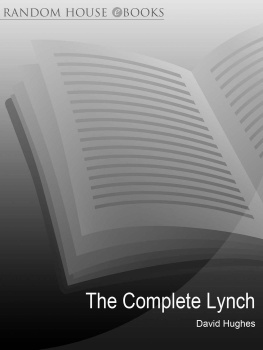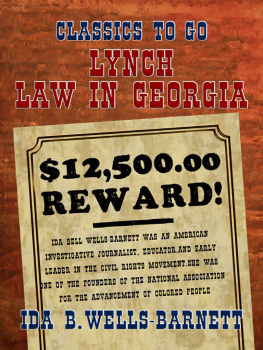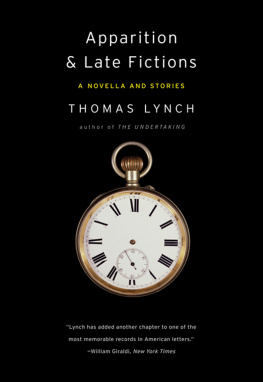Danielle Anne Lynch - God in Sound and Silence
Here you can read online Danielle Anne Lynch - God in Sound and Silence full text of the book (entire story) in english for free. Download pdf and epub, get meaning, cover and reviews about this ebook. year: 2018, publisher: Lightning Source Inc. (Tier 3), genre: Religion. Description of the work, (preface) as well as reviews are available. Best literature library LitArk.com created for fans of good reading and offers a wide selection of genres:
Romance novel
Science fiction
Adventure
Detective
Science
History
Home and family
Prose
Art
Politics
Computer
Non-fiction
Religion
Business
Children
Humor
Choose a favorite category and find really read worthwhile books. Enjoy immersion in the world of imagination, feel the emotions of the characters or learn something new for yourself, make an fascinating discovery.

- Book:God in Sound and Silence
- Author:
- Publisher:Lightning Source Inc. (Tier 3)
- Genre:
- Year:2018
- Rating:3 / 5
- Favourites:Add to favourites
- Your mark:
- 60
- 1
- 2
- 3
- 4
- 5
God in Sound and Silence: summary, description and annotation
We offer to read an annotation, description, summary or preface (depends on what the author of the book "God in Sound and Silence" wrote himself). If you haven't found the necessary information about the book — write in the comments, we will try to find it.
God in Sound and Silence — read online for free the complete book (whole text) full work
Below is the text of the book, divided by pages. System saving the place of the last page read, allows you to conveniently read the book "God in Sound and Silence" online for free, without having to search again every time where you left off. Put a bookmark, and you can go to the page where you finished reading at any time.
Font size:
Interval:
Bookmark:
Music as Theology
Danielle Anne Lynch
Foreword by David Brown

God in Sound and Silence
Music as Theology
Copyright 2018 Danielle Anne Lynch. All rights reserved. Except for brief quotations in critical publications or reviews, no part of this book may be reproduced in any manner without prior written permission from the publisher. Write: Permissions, Wipf and Stock Publishers, W. th Ave., Suite , Eugene, OR 97401 .
Pickwick Publications
An Imprint of Wipf and Stock Publishers
W. th Ave., Suite
Eugene, OR 97401
www.wipfandstock.com
paperback isbn: 978-1-5326-4149-7
hardcover isbn: 978-1-5326-4150-3
ebook isbn: 978-1-5326-4151-0
Cataloguing-in-Publication data:
Names: Lynch, Danielle Anne, author. | Brown, David, 1948 July , foreword.
Title: God in sound and silence : music as theology / Danielle Anne Lynch ; foreword by David Brown.
Description: Eugene, OR : Pickwick Publications, 2018 | Includes bibliographical references and index.
Identifiers: isbn 978-1-5326-4149-7 ( paperback ) | isbn 978-1-5326-4150-3 ( hardcover ) | isbn 978-1-5326-4151-0 ( ebook )
Subjects: LCSH: MusicReligious aspects. | Theology.
Classification: ML3921 .L96 2018 ( paperback ) | ML3921 .L96 ( ebook )
Manufactured in the U.S.A. 06/26/18
For Mike
with whom I make music
And the Word became human,and eternity entered time.Im tasting the sound of your voice in mine.
Maeve Heaney, Dancing in Our Minds
David Brown
I t was a pleasure to have been asked to write this preface to Danielle Lynchs God in Sound and Silence . The last few decades have witnessed a huge growth in the number of studies published on the relation between religion and the arts. This is no accident. Religion is concerned with breaking through the barriers that seemingly confine us to this material world, toward some sense of a transcendent reality existing beyond the normal confines of space and time. Although the arts do not usually have such a fundamental aim, there is nonetheless a common element to this degree.Artistic endeavour is usually concerned with taking us to a point beyond where we currently stand, with devices such as metaphor, analogy, and image used to transition the viewer or listener from one position to anotherthe new focus being in some ways like our existing perceptions, and in some ways not.
Of all the arts, it might seem as though music was best fitted to this shared move from one realm to another, inasmuch as music is often declared to be the least materialistic of all the arts. Thus, whereas a painters autograph on a particular canvas would confirm the unique material identity of that work (including its use of specific paints and techniques), music does not quite work like that. There is something much more intangible in the air that we hear and to which we respond. Indeed, even the autographed musical score lacks precisely the same privilege that we would be prepared to accord to the canvas, in that the conductor and performers do not merely transmit or mediate the work; they also, in some sense, themselves produce a unique creation.
Yet, intriguingly, that apparent contrast is not where Lynch begins her analysis of how music and religion might relate. Instead, she contends that the immateriality of music is much exaggerated, and that it is precisely in its materiality that God will be found. In such stress on the materiality of music, it does seem that she is onto something quite important. Whereas half a century ago, concert performances were very formal affairs with little engagement with the audience, if nothing else, declining audiences have encouraged a different approach that returns us to earlier traditions that assumed, for example, willingness on the performers part to reveal their emotional involvement, or else eye contact with the audience that acknowledges participation in a shared experience.
But Lynchs analysis takes us well beyond any such general observations as these. Lynch is well qualified in both theology and music, and so, perhaps not surprisingly, that perspective is reinforced by some profound reflections that draw upon recent work in both disciplines. Thus, drawing on analyses of popular culture and the history of classical music, she notes how much musics form and impact are dependent on particular contextual settings. Of course, we can continue to enjoy Baroque or Romantic music in our own very different setting, but the impact of the music will be considerably reduced unless we show some willingness to enter imaginatively into those different, earlier contexts. That is one reason why whole chapters are devoted to considering some of the main periods in the history of classical music, and the type of relation with listeners that was implied, including in our own much more pluralistic age.
But, as well as such overall assumptions about the cultural specificity of music and the accompanying detailed musical analysis that is then made possible, Lynch also draws on her deep knowledge of theology to supply us with a corresponding theological framework with which to approach such music. Here she identifies the key category as lying, not as readers might perhaps expect in the sacred, but in a broader category which she labels as the sacramental. In this, she applies an insight to music that is adopted by a number of Catholic theologians in the twentieth century, Karl Rahner being perhaps most obvious among them. Whereas the first millennium of Christianity had identified a very wide range of material objects as potentially capable of participating in transcendent reality, for various reasons, in the second millennium such terminology came to be more narrowly identified with specific sacraments. The return to the earlier wide usage allowed perception of the possibility that the material might, through its symbolic character, effectively already hint at or disclose the transcendent, and it is this notion that Lynch uses so powerfully in her treatment of music. At the risk of putting the issue in altogether too-crude terms, one might say, whereas an Aristotelian account of reality requires a sharp distinction between our world and transcendent reality with argument required for us to move from one to the other, this more participatory or Platonic conception permits us to see divine signs, as Augustine might have expressed it, already there in the material order, waiting to explode into a fuller realisation of that alternative reality.
Even more profoundly, it also allows Lynch to challenge the view that God is only to be found in sacred music: music specifically devoted to the creation of religious sentiment, most obviously perhaps through the attachment of suitable words. Even without words, though, certain symbolic features within a specific piece of music might have exactly the same effect. If this is indeed so, then major questions are certainly posed about any attempt to ban non-sacred or secular music from churches, as though the secular is necessarily without religious impact. Although Lynch does not discuss these issues, one challenge would be to those who object to the devils best tunes being usurped for Christian hymns. Another, perhaps more controversial topic would be the decision by Pope John Paul II to ban secular music concerts from the churches of Rome. Was the decision well-founded or not?
Any type of music whatsoever has, therefore, the potential in Lynchs view to enable an embodied encounter with God, and thus, so far from retreating to our spiritual core to provide the necessary means, it is the body in itself that offers this privilege. It does not do so by illustrating specific Christian doctrines, as some have suggested, but rather by providing a moment of revelation, and this it does most explicitly at points of liminality. This is one reason why the requiem form so interests Lynch, and in particular the way in which it has changed across the centuries, as social context has changed.
Font size:
Interval:
Bookmark:
Similar books «God in Sound and Silence»
Look at similar books to God in Sound and Silence. We have selected literature similar in name and meaning in the hope of providing readers with more options to find new, interesting, not yet read works.
Discussion, reviews of the book God in Sound and Silence and just readers' own opinions. Leave your comments, write what you think about the work, its meaning or the main characters. Specify what exactly you liked and what you didn't like, and why you think so.









